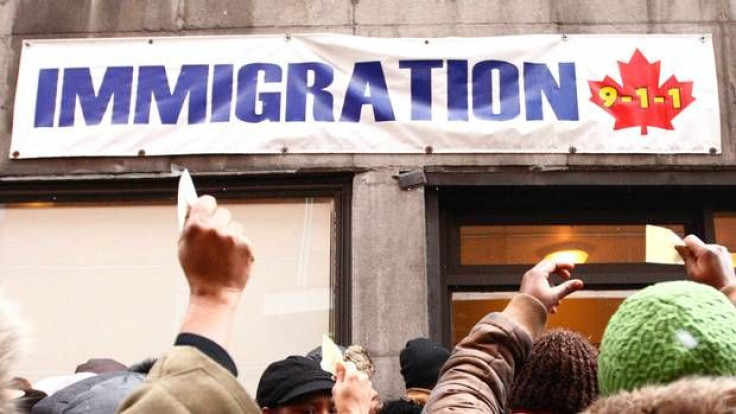
In the debate over immigration policy in the United States, much attention has been focused on Mexico, the country's neighbor to the south. But in crafting a comprehensive immigration reform bill, the "Gang of Eight" senators reportedly looked northward to Canada in seeking out a model for what they were trying to accomplish. The United States' northern neighbor began last month to receive immigrants approved for entry based on a mid-2010 series of immigration bills passed in Canada which established a revamped points system to evaluate who could come to work and live there. US senators say the point system which the Senate's bill includes was an idea borrowed straight from Canada's playbook.
"Much like the Canadian system does in Canada, our points system very carefully weighs the need to make sure Americans get first crack at available jobs but if none take them, allows American companies to find the people they need," Senator Chuck Schumer (D-N.Y.), one of the members of the "Gang of Eight", told the Wall Street Journal in an email. The Canadian reform uses points to assign a higher premium on youth, employment already established for them in the country, and whether or not their line of work is in very high demand in Canada. It also heavily favors immigrants who come with advanced English and French language skills, which has prompted liberals to criticize Prime Minister Stephen Harper's Conservative Party of trying to turn back a trend in which more Asians and Middle Easterners entered the country.
According to the Wall Street Journal, Europeans made up 78 percent of immigrants to Canada before the 1970s as opposed to 8.5 from Asia or the Middle East; from 2006 to 2011, 57 percent were Asian or Middle Eastern, while Europeans were only 14 percent. Meanwhile, as of 2006, immigrants earned only 60 to 70 percent of what Canadians did, as opposed to the 85 to 90 percent that they did in the 1970s. One reason for that their education and training is often incompatible with the needs of the Canadian workforce. Canada's new applicant-screening system seeks to speed up the immigration process for skilled tradesmen who want to come from other countries. In particular, Canada's government says the country will need hundreds of thousands of carpenters, plumbers and electricians among other tradesmen in order to solve what Employment Minister Jason Kenney calls "acute labor shortages" in the country's construction sector. Many of them will go to work in the Alberta oil sands. "We simply do not have enough qualified tradespeople in Canada to fill those labour needs," Kenney told Canada.com in early August.
More than 20 percent of Canadian residents were foreign-born in 2011, compared to 13 percent in the United States.
RELATED: Immigration Reform 2013: Path To Citizenship Or Just Legal Status For Undocumented? Try Both, Says One Expert
© 2024 Latin Times. All rights reserved. Do not reproduce without permission.